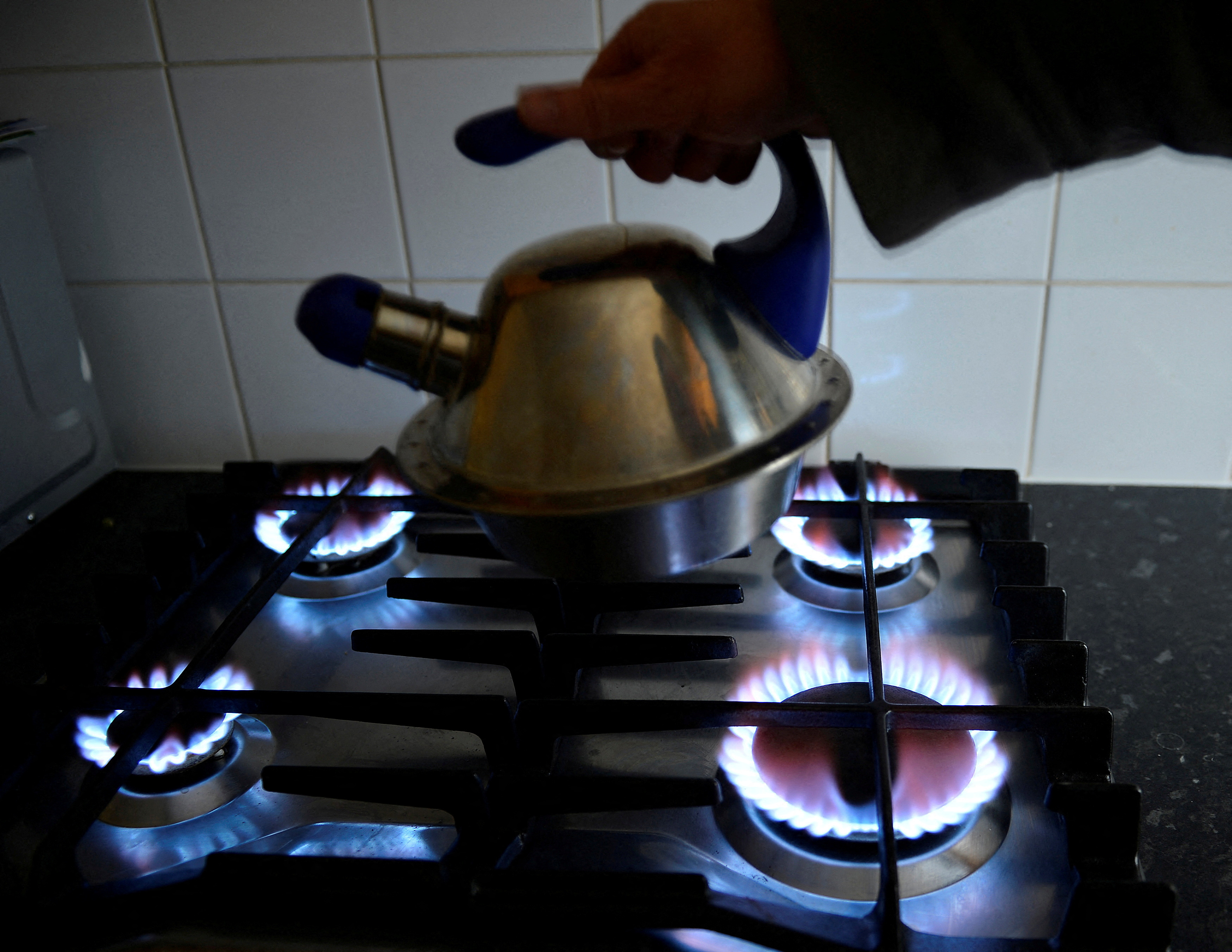Summary
- Price cap for 24 million households to rise from October
- Even higher prices expected in January
- Regulator calls for urgent government intervention
- ‘This is a national emergency,’ Labor opposition says
British energy bills will surge 80% to an average of 3,549 pounds ($4,188) a year from October, the regulator said on Friday, pushing businesses into jeopardy and millions of households into fuel poverty unless the government steps in.

Ofgem CEO Jonathan Brearley said the jump would have a huge impact on households across Britain, and a further rise was expected in January as Russia’s move to choke European supplies pushes wholesale gas prices to record highs.
“This is a catastrophe,” Britain’s largest consumer rights champion Martin Lewis said, cautioning that people would die if they refused to heat their homes or cook food this winter.
Brearley said the government response needed to equal the extent of the crunch with “urgent and decisive” action. Prime Minister Boris Johnson, who has less than two weeks before he leaves office, said his successor would declare “extra cash” intended for the most vulnerable in September.
He told reporters:
“But what I don’t think we should be doing is trying to cap the whole thing for absolutely everybody, the richest households in the country.”
In May, when price forecasts were substantially lower, the government declared a 400-pound ($472) markdown on consumer bills for this winter. The opposition Labor Party said that if it were in government it would restrict prices which would cost about 60 billion pounds every year – about as much as the COVID pandemic furlough scheme.
The pressures are being experienced across Europe but in Britain, which is especially reliant on gas, the price hikes are substantial. An annual average bill of 1,277 pounds in 2021 will reach 3,549 pounds this year and leading forecaster Cornwall Insight said prices were expected to push up again in 2023.
It predicts bills to peak in the second quarter at 6,616 pounds and households could pay about 500 pounds each month for energy next year, a larger sum than mortgage or rent for many.
The jump has soared inflation to a four-decade high and the Bank of England has cautioned of an extended recession. Despite the gloomy outlook, Britain’s response has been obstructed by the race to replace Johnson that lasts until Sept. 5, focused on the votes of Conservative party members committed on tax and spending cuts.
The two candidates- former finance minister Rishi Sunak and Foreign Secretary Liz Truss – have disputed over how to respond, with the front-runner Truss initially saying she would rather lower taxes than offer “handouts”.
Both parties have agreed that the poorest in the society will require support and the government went ahead on Friday in saying that households should consider how much energy they use – after previously saying people would know what to do.
‘NATIONAL EMERGENCY’
The Labor party said the country could wait no longer for measures to be taken. “This is a national emergency,” finance spokesperson Rachel Reeves said.
Sunak and Truss have proposed postponing environmental levies or lowering a sales tax – both ideas rejected by analyst as far too little to allay the huge hit to household budgets.
Rises in wholesale prices are transferred to British consumers through a price cap, computed every three months, that was devised to prevent energy suppliers profiteering but is now the lowest price available for 24 million households.
Such is the volatility in the sector that about 30 energy retailers have shut down and Ofgem said many domestic suppliers are not earning a profit.
Supplier E.on said Britain should step up its move away from gas and better protect its draughty Victorian-era housing stock, while peer Scottish Power advised the government to form a deficit fund to reduce bills and spread the cost over a 10-15 year period.
Buy Crypto NowOfgem said its customers who could not settle their bills would be given affordable repayment plans by their supplier.
They would only be compelled to move to prepayment meters, which charge above-average rates, as a “last resort”, it said.
The market is too uncertain to forecast the next cap for January, Ofgem said, but conditions in the gas market in winter indicated prices could get “significantly worse” through 2023.
($1 = 0.8463 pounds)








